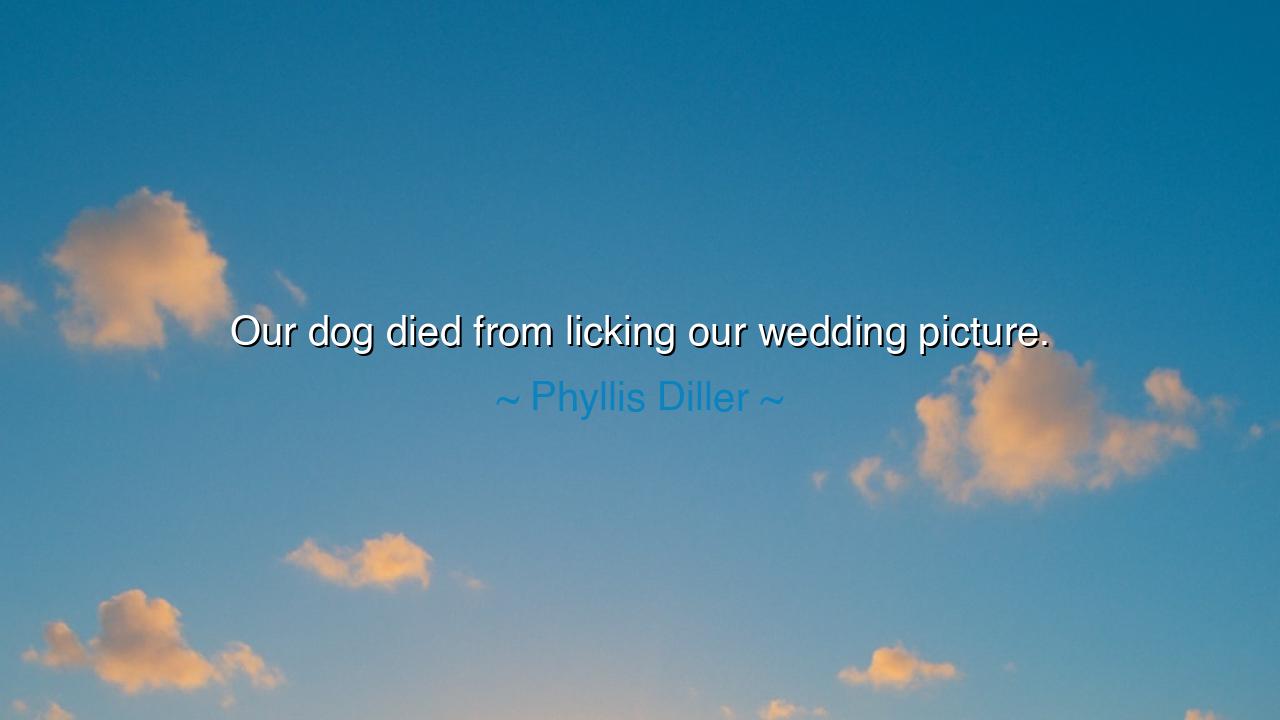
Our dog died from licking our wedding picture.






The words of Phyllis Diller, though draped in humor, conceal a deeper truth: “Our dog died from licking our wedding picture.” At first, it seems but a jest, a comic exaggeration meant to stir laughter. Yet beneath the laughter lies an ancient lesson—that even in sacred unions and symbols of love, imperfection abides, and that life itself often mingles joy with absurdity.
The wedding picture, in its essence, is a symbol of devotion and unity, the immortalized image of two lives beginning as one. But Diller’s jest transforms this symbol into a vessel of irony, showing how fragile even the most revered tokens can be when touched by reality. Just as the picture might carry glossy perfection while hiding struggles beneath, so too does her humor remind us not to take appearances as the fullness of truth.
This pattern echoes through history. Consider Diogenes the Cynic, who mocked the pretenses of wealth and power with biting wit. When Alexander the Great offered him anything he desired, Diogenes simply replied, “Stand out of my sunlight.” His humor carried wisdom, teaching that grandeur is often illusion, and truth lies in simplicity. In the same spirit, Diller uses comedy to unmask the seriousness we often give to symbols, revealing that laughter itself can be a kind of wisdom.
Her words also speak to the necessity of lightness in the weighty bond of marriage. For union brings trials, quarrels, and burdens; but if laughter is present, the soul remains free. The dog licking the wedding picture is an image of irreverence, a reminder that even what we revere can be gently mocked without losing its meaning. In fact, by laughing at the imperfection, we learn to endure it with grace.
Therefore, let this teaching be remembered: even in the most solemn of covenants, there is need for joy, wit, and the courage to laugh at ourselves. A wedding picture may stand as a monument of love, but it is the laughter, the shared mirth in life’s absurdities, that sustains the bond when trials arise. Phyllis Diller, in her jest, bequeaths a deeper wisdom—that humor is not the enemy of love, but its companion, turning sorrow into resilience and imperfection into light.






AAdministratorAdministrator
Welcome, honored guests. Please leave a comment, we will respond soon